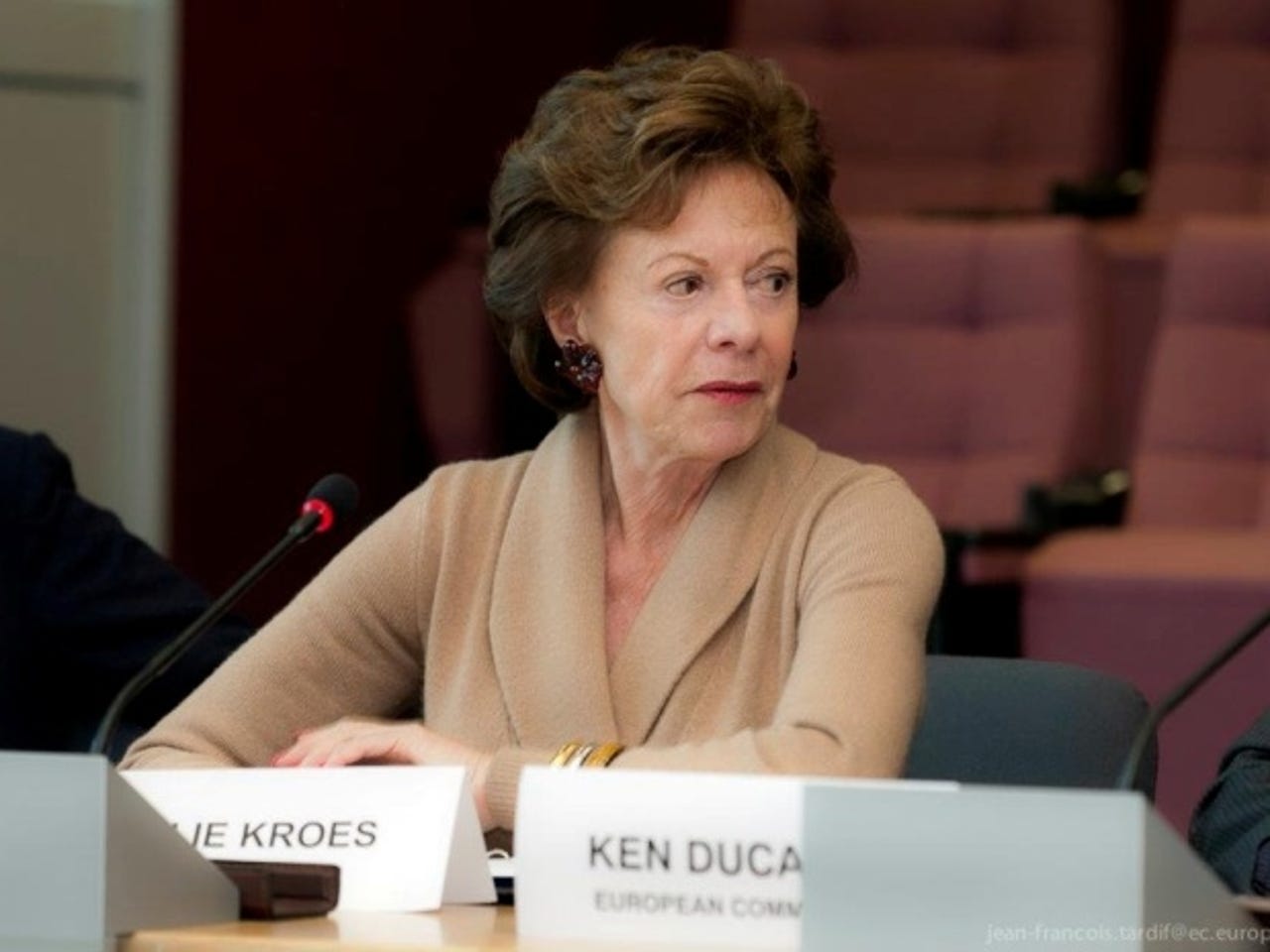EU digs trenches in 'real battle' over the future of the internet

The European Union has set out its position in the looming fight over control of the internet, arguing that it should 'stay open and global'.

"There is a real battle about how to govern the internet," digital agenda commissioner Neelie Kroes said in a statement on Friday. "The European Union's firm view is that the internet works. If it ain't broke, don't fix it."
The 193 member countries of the International Telecommunications Union (ITU), a UN agency, are set to meet next week and the week after to revise its rules, known as the International Telecommunications Regulations (ITRs). The ITRs have not been revised since 1988 and do not cover the internet.
Countries such as Russia have argued that the ITU should have control over many functions of the internet, leading many observers, including European parliamentarians, to fear an increase in online censorship.
The big European telcos have also proposed using the rule change to ban net neutrality around the world. However, it is important to note that these proposals are just several among many. It is not yet clear how much the ITU itself really wants to assert control over the internet.
On Friday, Kroes — who has already stated her opposition to the takeover proposals — firmed up her position considerably in the new statement. She also laid out a common position agreed by EU member states.
"[The internet] is a priceless global asset for everyone and should stay open and global," Kroes said. "The ITR treaty has worked because it is high level and it should stay high-level. That's the thrust of the positions we are taking to Dubai."
The common position is as follows:
- Not to support any proposals that may affect EU common rules or alter their scope, or introduce obligations on operators which go beyond those already provided for under these rules
- To support proposals that seek to ensure that the revised Treaty remains high level, strategic and technology neutral and to oppose proposals to make ITU recommendations binding
- To ensure the ITR revision process does not lead to an increase in the scope of the current ITR Treaty or to an increase in the responsibilities exercised by the ITU under its current mandate
- To support proposals to respect human rights in relation to international telecommunications, such as on privacy and personal data protection in relation to personal data and communications
- To support measures to promote greater international co-operation in ensuring the robustness of networks used for international telecommunications traffic
- To support pro-competitive measures and greater transparency on prices, for international telecommunications traffic and roaming, based on commercial negotiations in a free and fair marketplace.
A dynamic list of all the proposed changes to the ITRs can be found here.